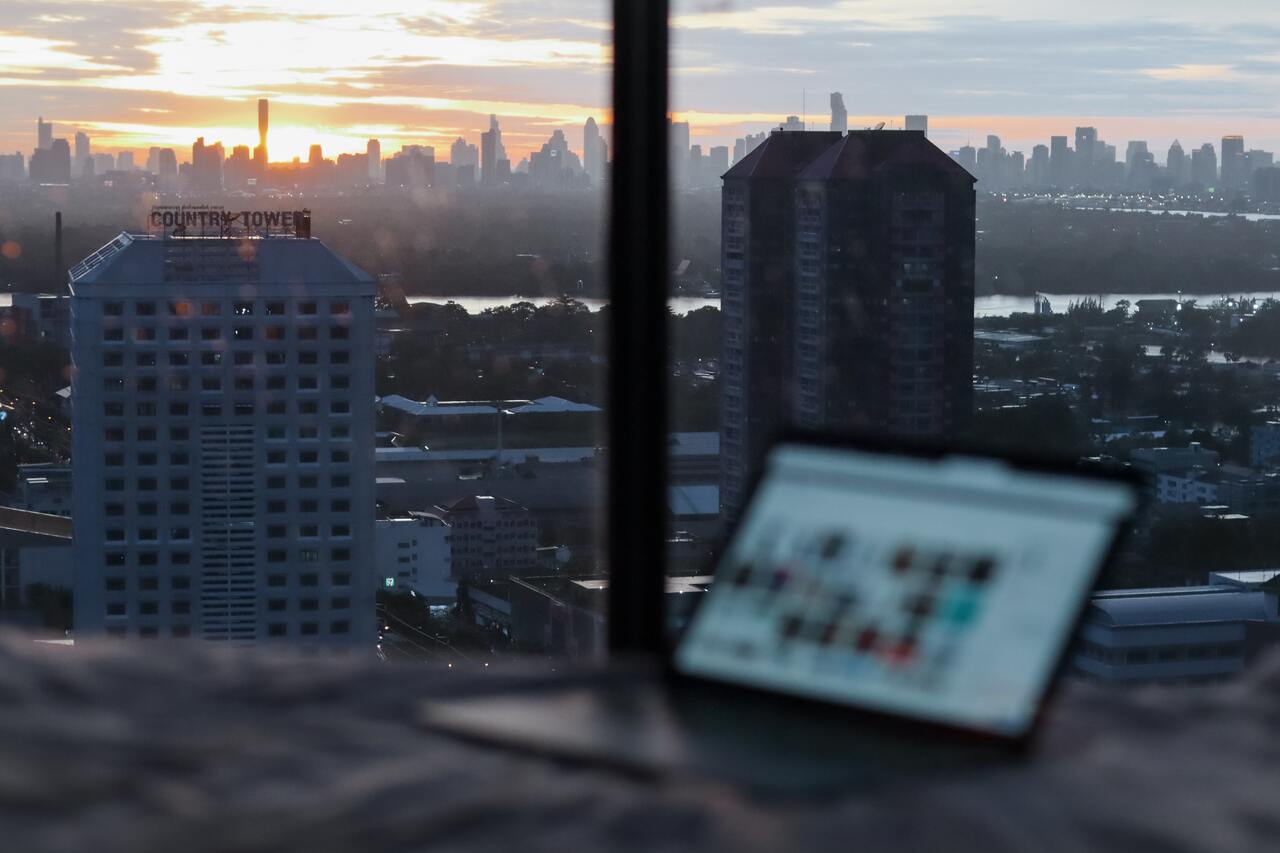4 cost-saving tips for digital nomads
In 2022, travel finally opened back up. But, after a long stint out of the office, many didn’t feel like returning. The past few years have seen drastic changes in our workflow, as well as companies adjusting their expectations around how employees get their work done. As a result, digital nomading is back – and it’s bigger than ever before.
Whilst going from, say, the UK to Montenegro may seem like a hugely cheaper lifestyle, many nomads are struck with just how much more they spend than they imagined. Below are four tips on how to successfully keep costs down as a digital nomad.
Picking your transport wisely
Many nomads will appreciate good public transport. Trains can be a blisteringly fast way to travel as it avoids traffic and goes in a relatively straight line. But, this isn’t the case when in South East Asia, for example, where they can be excruciatingly slow.
As great as public transport can be, we need to know when it’s worth renting private vehicles and when it isn’t. Renting a car in Mallorca with ROIG, for example, is a no-brainer because it’s almost impossible to navigate the island in any other way. You would be missing out on the best parts of Mallorca if you didn’t have a car – namely the hidden beaches and mountain villages. It would cost far more in taxi fares than it would to rent a car.
But when in the majority of Northern, Western, or Central Europe, renting a car makes less sense, particularly when staying in major cities. Eurail has some great package offers, whilst cities like Barcelona are exceedingly easy and cheap to navigate by metro.
AirBnB can be great – but it has its limits
AirBnB is a common tool for digital nomads. It’s no secret how easy it is, but what many do not realise is just how much they can save by doing month-long stays. A lot of AirBnB landlords frequently offer a 10-50% nightly discount for month-long stays to entice customers. It helps reduce their vacancy rate and cleaning costs, making it a win-win for both parties.
But, we can’t always stay a month in a new place. It might be a gamble or we are simply passing through. The tip here is to not rely solely on AirBnB, because we can lose scope of what we’re actually getting for our money.
In a busy city centre, like London or Prague, hotels are in greater supply. There will be more empty hotel rooms in that city than AirBnBs, most likely, because hotels can squeeze hundreds of rooms into one building. And, land is pricey in cities.
This means that nightly rates for hotels are often cheaper than AirBnB if it’s a short stay in a city. But, even if the price is the same, consider what you actually get for your money. The privacy and kitchen of an AirBnB may be great for a month’s stay, but for two nights, do you really want a kitchen, sofa, and a possibly tricky check-in process? What about facilities? The similarly priced hotel may have a swimming pool, room service, gym, a lobby to help you with questions or in booking a taxi, better parking, and daily cleaning.
Buy local food
This is a fairly obvious one, but buying local produce will always be cheaper than finding imported food from back home. This goes for beer in particular, but also snacks and fresh food.
But more than the actual ingredients, it’s important to buy local food in a local way. If you’re sitting in a cafe in Chiang Mai surrounded by other nomads and backpackers, it’s evident you’re not eating in the same way that the locals eat. So, even if you order a local dish and local drink, you’re almost certainly paying way over the odds for it.
Take notice of how locals eat. If it’s at markets, then this will likely be the cheapest place to go. But if there’s an option between a cafe with a menu in English or an outdoor food area filled with locals, pick the latter if money is a concern.
One bag, one price
Finally, it is a nod to the one-bag movement that is our final tip. One bag simply means travelling with one bag, as opposed to a suitcase. This isn’t ideal for everyone, and that’s okay, but most people (even if they don’t know it themselves yet) can fit all of the stuff they need into a 35L backpack.
The advantages of this are numerous:
- Easier to manoeuvre and to get around
- Safer because your belongings never leave your side
- More mindful because we need to be intentional about what we bring
- Saves money because we’re limited by space, so we can’t buy much during our travel
- Avoids paying the checked-in luggage fee for every flight, saving hundreds across various flights
However, be careful here. If you find yourself having to buy and replace items because of a lack of space, such as winter coats and swimming shorts when changing climates, then consider if you’re really saving any money at all. If you’re a slow traveller and stay in each place for a long time, the issues of a suitcase may be exaggerated.

